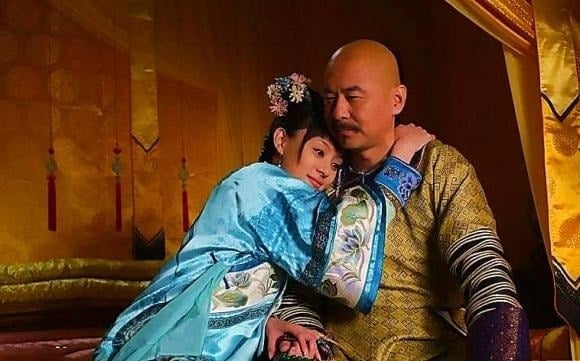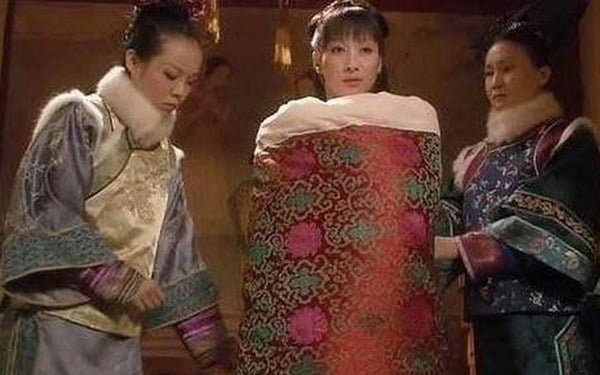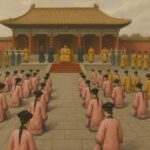In feudal societies, the Emperor was considered the supreme ruler, with an elevated status. Any behavior associated with him was highly regarded and strictly adhered to. In this context, royal concubinage was not merely a private matter but also carried political significance, contributing to the continuity of the imperial lineage.
During the Qing Dynasty, when imperial concubines were summoned for concubinage, they were required to maintain silence and refrain from conversing. This regulation not only showcased absolute reverence for the Emperor but also ensured hygiene, maintained court rituals, and demonstrated the dynasty’s solemnity in safeguarding the purity and sanctity of the imperial family.
Why were Qing Dynasty imperial concubines required to remain silent during concubinage?
In the Qing Dynasty, imperial concubines had to adhere to strict silence when the Emperor exercised his conjugal rights. This was due to the highly regulated nature of the court system at the time. The primary purpose of this rule was to maintain maximum control and confidentiality during the Emperor’s intimate moments with his concubines.
Moreover, the presence of eunuchs from the Palace of Ceremonial Observance, who stood guard near the imperial bedchambers, further contributed to the solemn and unnatural atmosphere. Despite the appearance of being favored, many concubines endured restrictive conditions, lived under ritualistic constraints, and experienced a lack of personal freedom and emotional fulfillment. Behind the opulent and noble facade, their lives were often marked by silence and loneliness.

Why weren’t imperial concubines allowed to wear clothing during concubinage?
The practice of imperial concubines not wearing clothing during concubinage stemmed from multiple reasons. Prior to being summoned, concubines had to bathe, remove all garments, and lie awaiting in a blanket, ready to be escorted by eunuchs to the imperial bedchambers.
This regulation ensured hygiene and was also part of the internal security mechanism of the palace. Being unclothed eliminated the risk of concealing weapons or plotting to assassinate the Emperor—a concern during the politically unstable times of the Ming and Qing Dynasties.

Imperial Concubines and the Emperor in the Qing Dynasty: Restricted Even in the Allotted Time
In the Qing Dynasty, both imperial concubines and the Emperor himself were subject to stringent regulations regarding the duration of concubinage—one of the many unspoken yet strict rules within the palace walls.
Specifically, the Emperor was permitted to spend a maximum of 30 minutes with each concubine. This seemingly simple rule highlighted the tight control and restrictive nature of life in the imperial harem.
From restrictions on speech and clothing to limited time for intimacy, it is evident that the lives of imperial concubines in the depths of the palace were far from glamorous. While they adorned themselves in fine silks and resided in majestic palaces, their existence was often marked by loneliness, pressure, and harsh regulations that few could empathize with.
Hence, an ancient folk saying captures the essence of their lives: “Being born ordinary is a form of happiness, for a life of royalty sometimes hides untold tragedies.”
The Forbidden City’s Secrets: Why Were Qing Dynasty Concubines Bound to Silence Post-Intimacy?
“Within the intricate web of rituals and stringent rules that governed life in the Qing Dynasty’s harem, a haunting ‘unspoken rule’ existed: absolute silence was mandated for the consorts during imperial bedchamber rituals. This eerie mandate loomed over the women, casting a shadow of secrecy and intrigue within the depths of the imperial quarters.”
Why Did Emperor Qianlong Order the Destruction of Yan Wenjing’s Tomb?
“The enigmatic Emperor Qianlong’s unexpected orders to raze the tomb of Dian Wenjing, a trusted courtier favored by Emperor Yongzheng, shocked the court and left historians with intriguing questions. This intriguing episode, which occurred after the imperial sacrifice at Tai Ling, sheds light on the complex dynamics of imperial China and the enigmatic decisions of its rulers.”



































